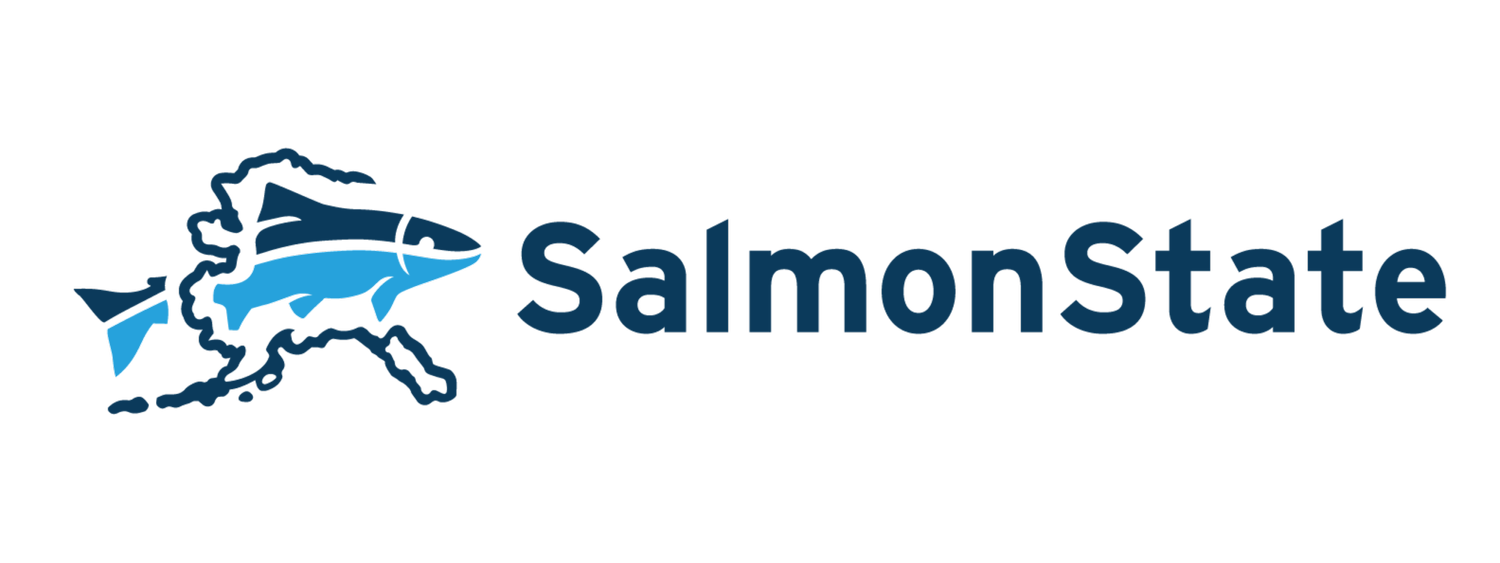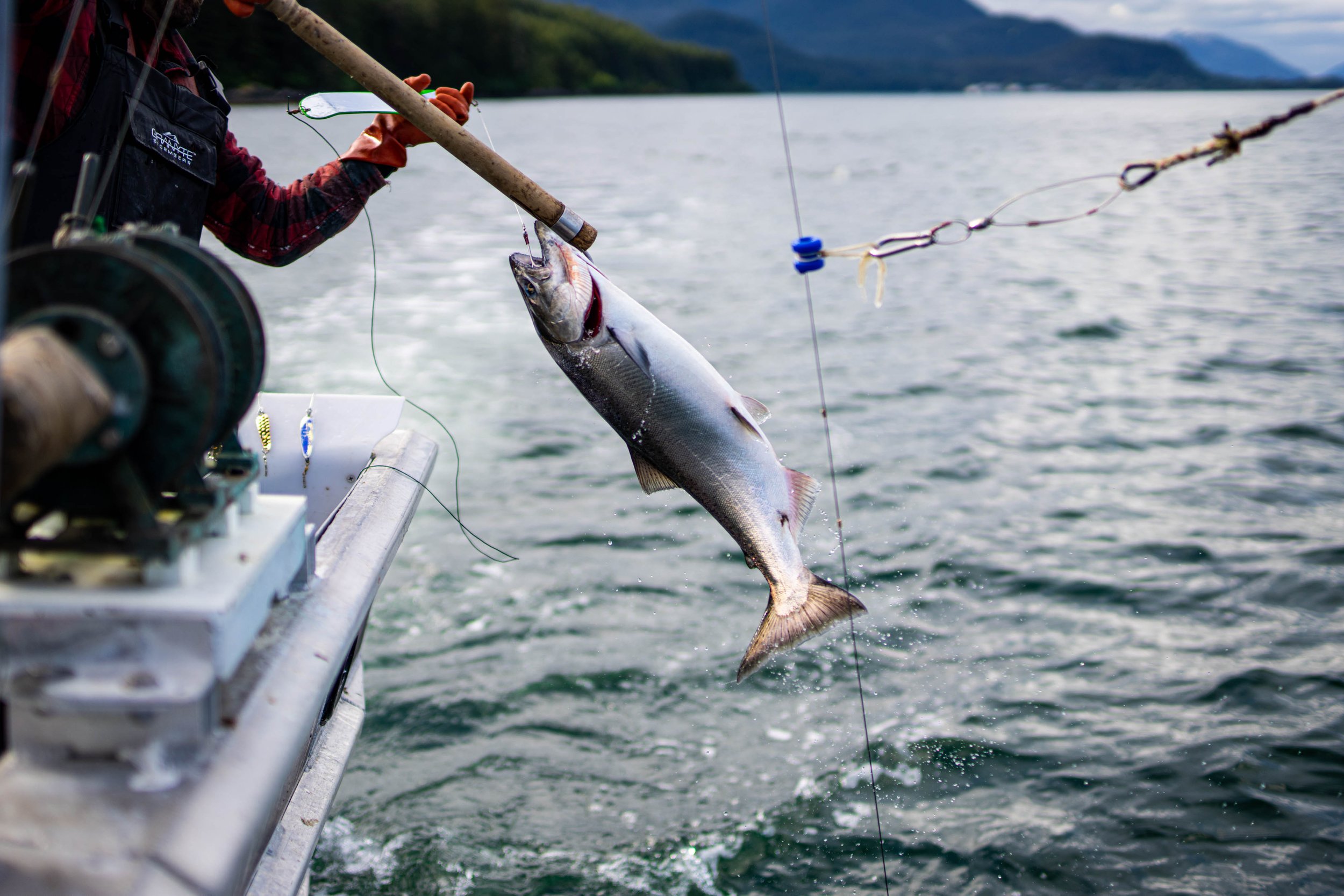SalmonState condemns Wild Fish Conservancy’s fatally flawed approach to environmentalism and judge’s decision on Alaska’s troll fishery
Photo by Bethany Goodrich
JUNEAU, ALASKA— SalmonState condemns, in the strongest possible terms, the Wild Fish Conservancy’s misguided, destructive lawsuit against commercial salmon trollers in Southeast Alaska — and Seattle-based federal district judge Richard Jones’ decision today upholding a magistrate’s recommended order that would close the fleet’s winter and summer Chinook salmon fishery.
“As a wild salmon-focused environmental organization, SalmonState condemns the Wild Fish Conservancy’s misguided, irresponsible litigation — which in all probability won’t save a single endangered killer whale, but will ruin the livelihoods of thousands of Southeast Alaska’s most committed, long-term conservationists and wild salmon allies,” said SalmonState executive director Tim Bristol. “This is an abuse of the Endangered Species Act by out of touch, ideological, serial litigants.”
Southeast Alaska’s troll fishery produces some of the highest quality, most sustainable wild salmon in the marketplace and is often the poster child for sustainable fisheries thanks to its strict fishery management, minimal bycatch, and small ecological footprint. The troll fishing fleet is comprised of small, family-owned fishing boats that use a hook and line to individually catch every salmon. While troll fishing vessels are small, their economic impacts are far-reaching, especially in Southeast Alaska, where nearly every community is home to trollers. The fishery has an 85% Alaska residency rate, with about one in every 50 people in Southeast working on a trolling boat. Many families from the Pacific Northwest migrate to Alaska each summer to fish in Southeast’s troll fishery, including 115 troll fishery permit holders in Washington.
Over the years, Southeast’s trollers have reduced their Chinook harvest with no effect on killer whales or Washington salmon populations — because, as Washington’s State of Salmon in Watersheds report makes clear, it is habitat destruction, dams, climate change, and contamination that are the driving problems feeding their continued decline. Killer whale populations in other parts of the Pacific Northwest and Alaska, including in Southeast Alaska, have increased in recent years, and a recent study found that inbreeding is a factor in Southern Resident killer whale decline. In the 1970s, about 270 orcas in the Salish Sea area had been captured in search of whales for SeaWorld aquariums. Twelve died during capture. Fifty were kept for display.
Trollers have a long record of advocating for wild salmon and their habitat in both Southeast Alaska and the Pacific Northwest, including when it comes to maintaining and restoring the health of the Tongass National Forest; fighting for the future of the transboundary wild salmon rivers Alaska shares with British Columbia; and removing the four lower Snake River dams in the Columbia River basin.
SalmonState conducted interviews with trollers earlier this year and recently released two short videos: Trollers are Conservationists and Trolling is Vital, which speaks to the importance of the fishery to small communities throughout Southeast Alaska. News organizations are welcome to use, reference, or request these videos.
“To save wild salmon, environmental organizations must work with people of all stripes who care deeply about wild salmon,” Bristol continued. “Instead of reaching out to trollers, or to others they target through their frequent lawsuits, the Wild Fish Conservancy is racing down a low road that will make it harder to save endangered salmon runs and threatens the people who rely most on wild salmon. The Wild Fish Conservancy’s approach to environmentalism is fatally flawed, and we condemn it in the strongest possible terms. This fight is far from over.”

